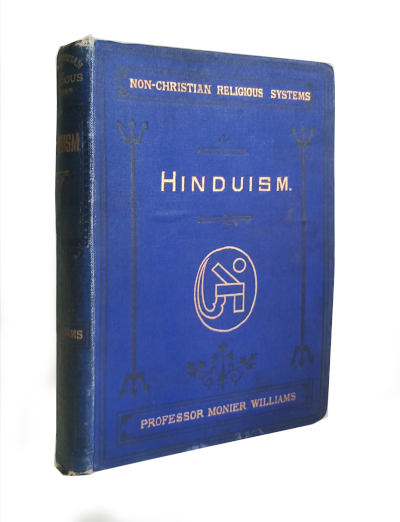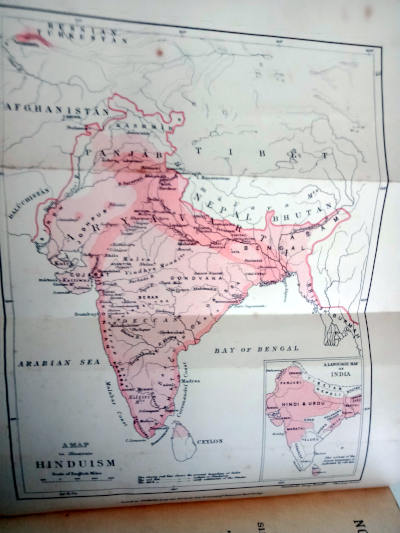An introduction to Hinduism by one of the most important Sanskrit scholars of the 19th century.
About Monier-Williams (from Wikipedia):
Sir Monier Monier-Williams KCIE (12 November 1819 – 11 April 1899) was a British scholar who was the second Boden Professor of Sanskrit at Oxford University, England. He studied, documented and taught Asian languages, especially Sanskrit, Persian and Hindustani.
When Monier Williams founded the University’s Indian Institute in 1883, it provided both an academic focus and also a training ground for the Indian Civil Service. Since the early 1870s Monier Williams planned this institution. His vision was the better acquaintance of England and India. On this account he supported academic research into Indian culture. Monier Williams travelled to India in 1875, 1876 and 1883 to finance his project by fundraising. He gained the support of Indian native princes. In 1883 the Prince of Wales laid the foundation stone; the building was inaugurated in 1896 by Lord George Hamilton. The Institute closed on Indian independence in 1947.
In his writings on Hinduism Monier Williams argued that the Advaita Vedanta system best represented the Vedic ideal and was the “highest way to salvation” in Hinduism. He considered the more popular traditions of karma and bhakti to be of lesser spiritual value. However, he argued that Hinduism is a complex “huge polygon or irregular multilateral figure” that was unified by Sanskrit literature. He stated that “no description of Hinduism can be exhaustive which does not touch on almost every religious and philosophical idea that the world has ever known.”




